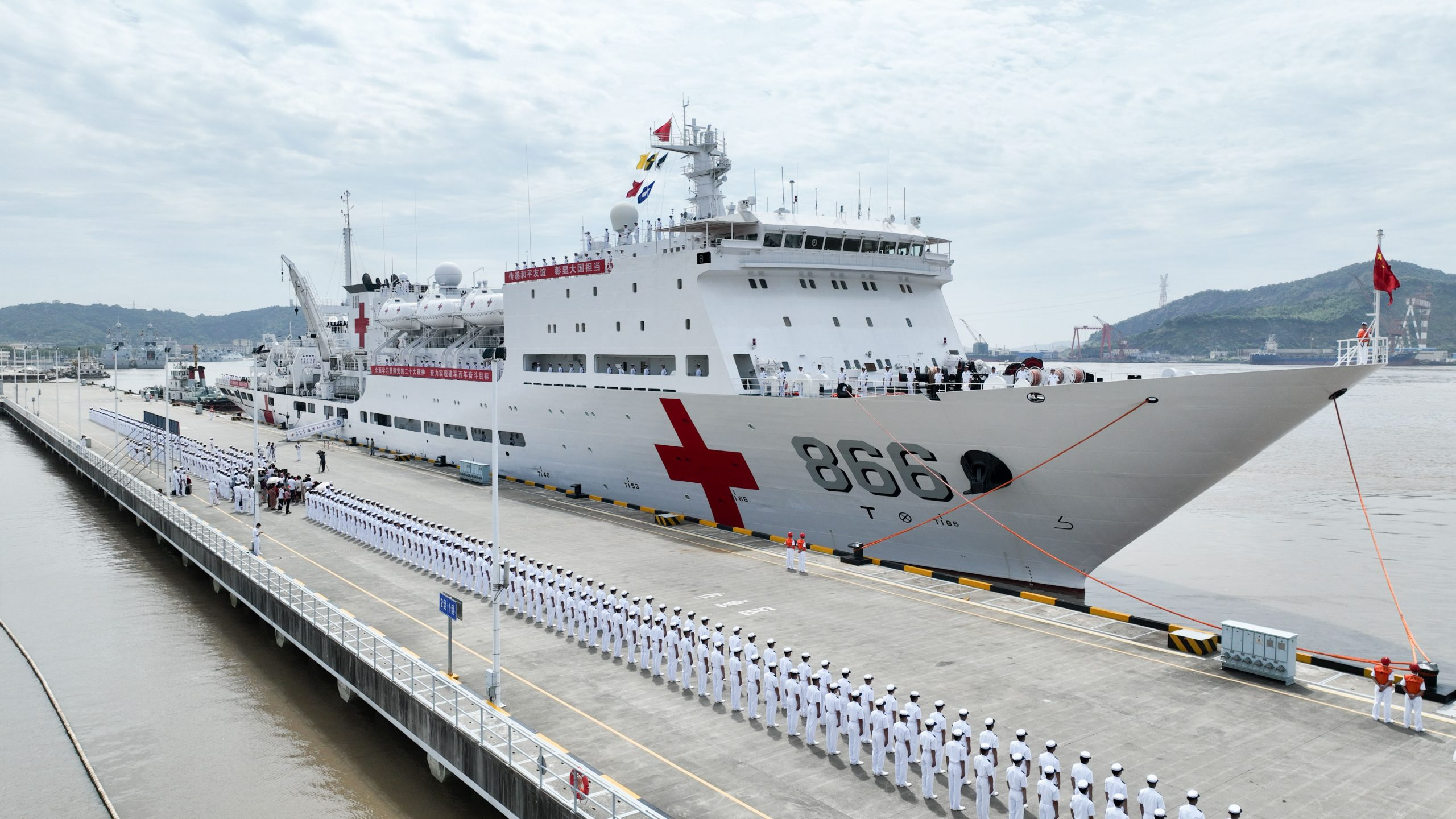Despite Cape Town’s harsh winter weather, residents are eagerly flocking to a Chinese hospital ship, the Peace Ark, docked in the city’s harbor. The influx of patients highlights the severe strains on South Africa’s public healthcare system, exacerbated by a financial crisis that has left public services underfunded and private healthcare prohibitively expensive.
The Peace Ark, a floating hospital with a capacity to treat 700 patients daily, offers a range of medical services from maternity check-ups to surgeries and alternative therapies like cupping. The ship is part of a joint initiative between the South African and Chinese military, showcasing Beijing’s growing influence and soft power in Africa.
Lucy Mnyani, a patient who visited the Peace Ark, expressed relief at receiving timely care and imaging for her unborn child—services she could not access at local clinics. Joseph Williams, another patient, appreciated the swift and efficient service compared to the lengthy waits at local public clinics.
Since its arrival, over 2,000 South Africans have been treated, including those from night shelters and care homes. The ship’s amenities include operating theatres, intensive care units, and even a rescue helicopter, reflecting China’s commitment to showcasing its medical capabilities and fostering goodwill.
The high demand for the Peace Ark’s services underscores critical issues within South Africa’s healthcare system. Despite efforts to improve access through the National Health Insurance (NHI) scheme, which aims to provide universal healthcare funded by a central pool, significant challenges remain. The NHI faces legal threats and opposition from various stakeholders, including private health companies and professional associations, concerned about its potential impact on the sector.
Critics argue that South Africa’s public health system is plagued by inefficiencies and corruption, with a significant portion of the budget lost to mismanagement. Dr. Shuaib Manjra of the Health Justice Initiative points out that the overwhelming response to the Peace Ark reflects the failures of the public health system to meet citizens’ needs effectively.
The Peace Ark’s mission, which also includes stops in Angola and several other African nations, is part of China’s broader strategy to enhance its presence and influence in Africa. Over the past two decades, China has significantly increased its trade with the continent and invested in large-scale infrastructure projects, further solidifying its role as a key partner in Africa’s development.
As the Peace Ark prepares to depart for its next destination, its visit to Cape Town serves as a stark reminder of the pressing need for reforms and improvements in South Africa’s healthcare system.


















